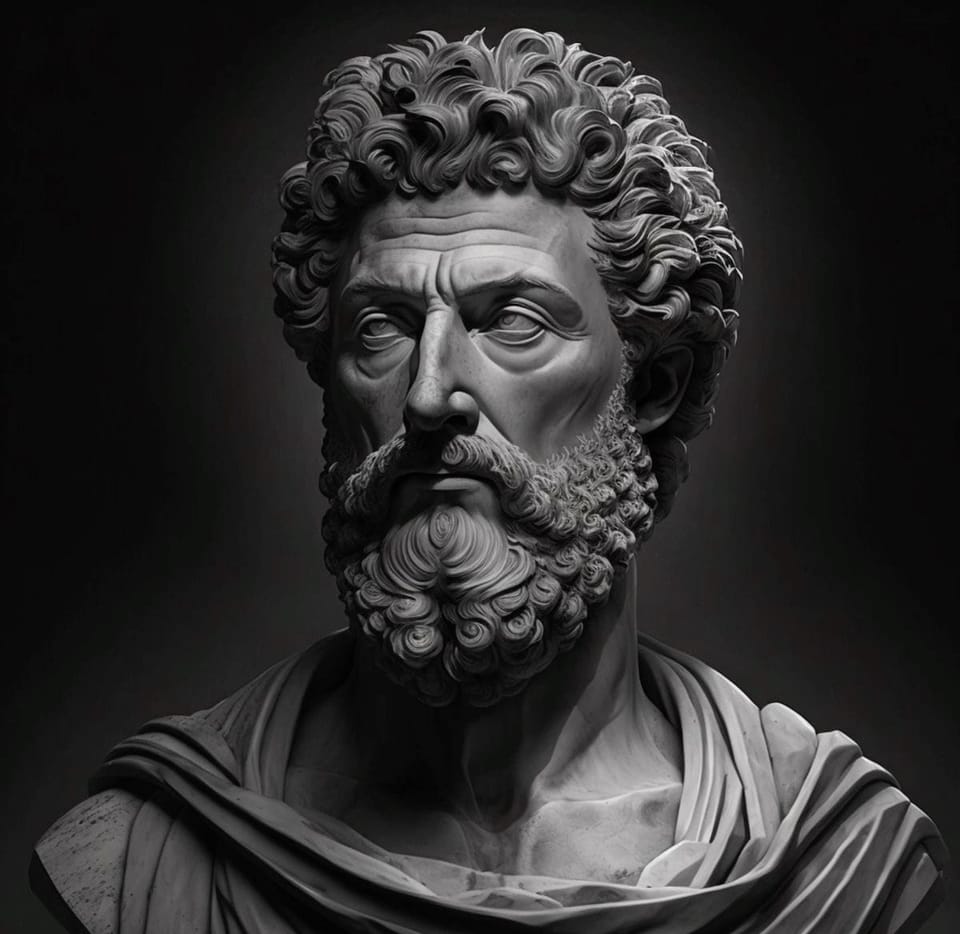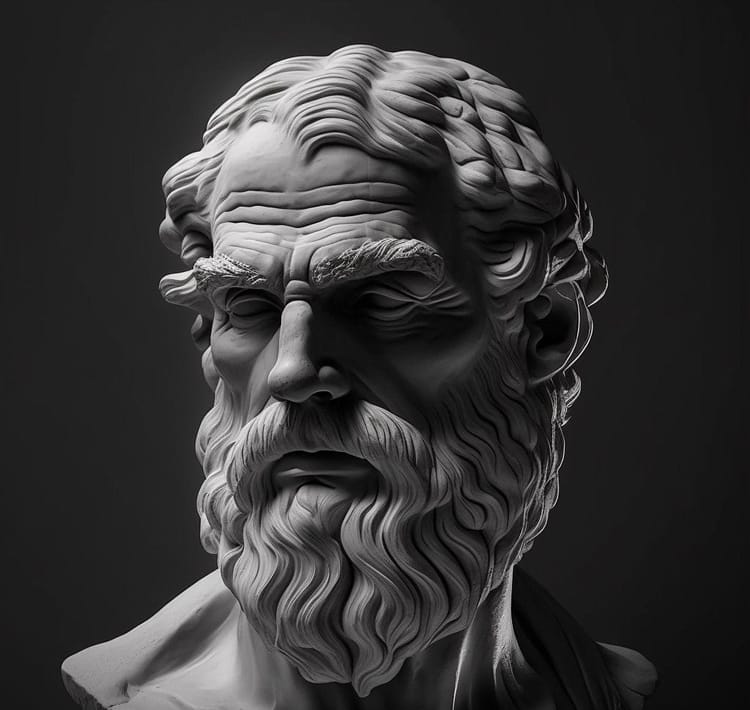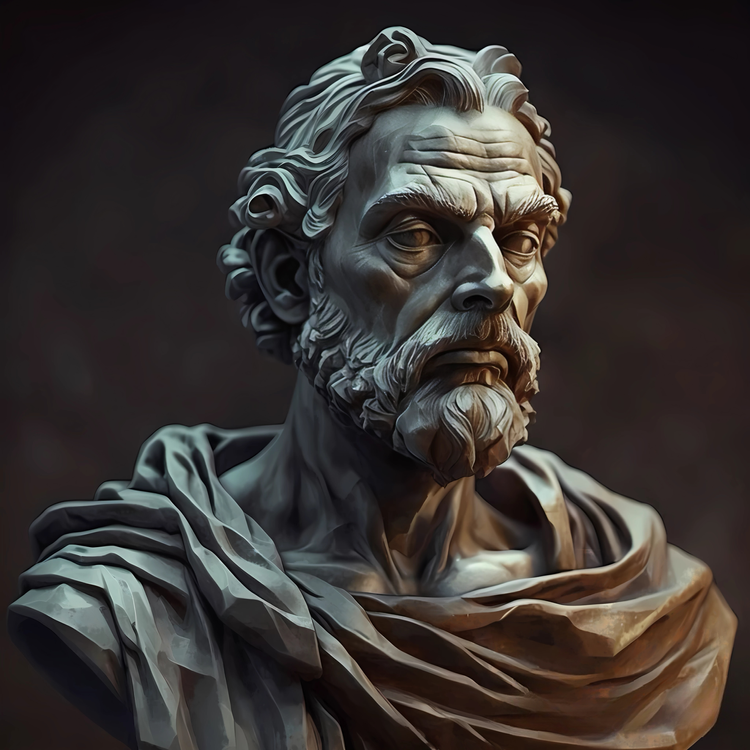Marcus Aurelius: The philosopher king.

Marcus Aurelius, one of Rome's most revered rulers, was not only a skilled political leader but also a deeply contemplative philosopher. His life, profoundly shaped by Stoicism, serves as a model of personal discipline and philosophical devotion. By understanding Marcus's journey through life, we can glean valuable lessons on leadership, resilience, and inner strength.
Early Life and Education
Born in 121 CE into a noble family with strong political connections, Marcus was adopted by Emperor Antoninus Pius, placing him in line to become a future emperor. Despite his privileged upbringing, Marcus was known for his humility and seriousness. His education, guided by esteemed tutors like the philosopher Rusticus, laid the groundwork for his Stoic philosophy.
Even in his youth, Marcus displayed a remarkable commitment to self-improvement and virtue. His teachers and guardians instilled in him the Stoic principle that a person's character and mindset shape their reality, not external circumstances. This would become a cornerstone of his later philosophical reflections.
His Reign as Emperor
Marcus became emperor in 161 CE, initially co-ruling with Lucius Verus. His reign was marked by crises, including military conflicts on the empire's borders and the devastating Antonine Plague. Despite these challenges, Marcus maintained a calm and composed approach to leadership. Rather than succumbing to panic, he adhered to the Stoic ideal of remaining rational and steadfast in the face of adversity.
Unlike many rulers, Marcus Aurelius did not shy away from hardship. He led his troops during the Marcomannic Wars, often enduring the same conditions as his soldiers. This commitment to duty and the wellbeing of his people exemplifies his Stoic belief that the welfare of the collective is more important than individual comfort.
Stoic Philosophy and Meditations
During his military campaigns, Marcus wrote Meditations, a series of personal reflections that reveal his thoughts on Stoic philosophy. These writings provide a glimpse into his efforts to cultivate inner peace amid external chaos. His teachings emphasize that while we cannot control external events, we can always control our reactions to them. This mindset—central to Stoicism—empowered Marcus to navigate the burdens of his role without succumbing to despair or frustration.
A notable quote from Meditations illustrates this: "You have power over your mind, not outside events. Realize this, and you will find strength." This timeless wisdom remains relevant today, offering readers a strategy to deal with life's uncertainties by focusing on what they can control—their own thoughts and actions.
Personal Life and Legacy
Despite his philosophical strength, Marcus Aurelius's personal life was fraught with difficulties. He and his wife, Faustina the Younger, had 13 children, though many died at a young age. His surviving son, Commodus, succeeded him as emperor but ultimately tarnished Marcus's legacy with a reign characterized by corruption and instability. Nevertheless, Marcus's own rule remains celebrated for its commitment to justice, wisdom, and personal virtue.
Lesser-Known Insights
While Marcus's public persona is well documented, certain aspects of his life are less widely known. For instance, Marcus dealt with chronic illness throughout much of his life, yet he never allowed it to interfere with his responsibilities as emperor. His handling of Avidius Cassius's revolt is another example of his philosophical commitment. Rather than seeking vengeance against Cassius for his betrayal, Marcus urged for clemency and understanding, preferring peace over punishment.
Lessons for Modern Readers
Marcus Aurelius's life offers invaluable lessons for navigating modern challenges. His Stoic philosophy teaches us that external events, no matter how dire, do not dictate our emotional state. By focusing on what we can control—our actions, attitudes, and thoughts—we can cultivate resilience and maintain peace in the face of adversity. Marcus's life demonstrates that true strength lies in the mastery of oneself, not in controlling others or external circumstances.
In a world where uncertainty often leads to stress and anxiety, adopting a Stoic mindset like Marcus Aurelius can empower us to face challenges with grace and composure. His life, dedicated to virtue, wisdom, and responsibility, provides a powerful example of how to lead both oneself and others with integrity.
I would highly encourage everyone reading this article to start reading 'Meditations' by Marcus. Even one paragraph a day would collectively make a notable shift throughout a prolonged period of time.
For further exploration of Marcus Aurelius's life and Stoic philosophy, readers can refer to historical sources such as History.com.



